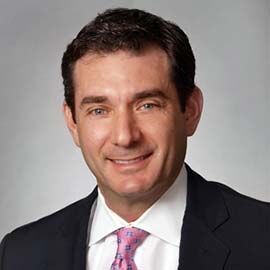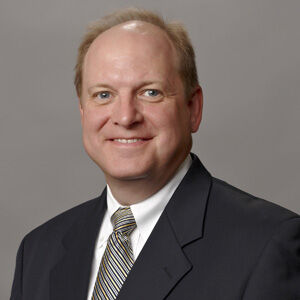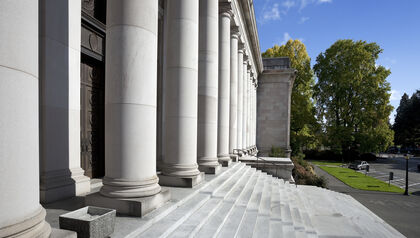With many businesses not eligible to receive loans under the Government’s stimulus lending Paycheck Protection Program (“PPP”), many businesses are turning their attention to the new Main Street Lending Program.
On April 9, 2020 the Federal Reserve launched the new Main Street Lending Program (“MSLP”) consisting of the Main Street New Loan Facility (“MSNLF”) and the Main Street Expanded Loan Facility (“MSELF”). MSLP is a stimulus lending program available to small and medium sized businesses that meet certain criteria and were in good financial standing prior to the outbreak of the COVID-19 pandemic. The program is also available to Private Equity and Venture Capital backed companies that were not eligible for loans under the Paycheck Protection Program. Businesses that have already taken advantage of SBA PPP loans may also secure loans under the MSLP.
The Department of the Treasury will provide $75 billion in equity to the MSLP lending facility, using funding from the Coronavirius Aid, Relief and Economic Security Act (“CARES Act”). The Treasury may expand appropriation in the MSNLF and MSELF to a combined balance of up to $600 billion. Borrowers seeking these loans must commit to undertaking reasonable efforts to retain workers and maintain payroll. Recipients of funding under MSLP are also required to follow restrictions related to compensation, stock repurchases, and dividends that apply to direct loan programs under the CARES Act.
Based on information from the Federal Reserve, a summary of the details and questions businesses may have about this new program are outlined below:
Does My Business Qualify for the MSLP?
Eligible borrowers for the MSLP are businesses that meet the following criteria:
Have up to 10,000 employees or up to $2.5 billion in 2019 annual revenue,
Must be a business created or organized in the United States or under the laws of the United States with significant operations in and a majority of its employees based in the United States.
How Much Can I Borrow Under the MSLP?
There are two loan facilities under the MSLP.
The Main Street New Loan Facility (“MSNLF”) is for new loans that originate on or after April 8, 2020. The maximum loan size is the lesser of $25 million or an amount that, when added to the borrower’s existing outstanding and committed but undrawn debt, does not exceed Four (4) times the borrowers 2019 EBITDA.
The Main Street Expanded Loan Facility (“MSELF”) allows banks to increase the size of an outstanding loan that was issued to a business customer prior to April 8, 2020 rather than initiating a new loan. The maximum loan size is the lesser of $150 million, 30% of the borrowers existing outstanding and committed but undrawn bank debt, or an amount, that when added to the borrower’s existing and committed but undrawn debt, does not exceed six (6) times that borrower’s 2019 EBITDA.
A company cannot participate in both the MSNLF and the MSELF. Companies that participate in the Main Street Lending Program cannot participate in the Primary Market Corporate Credit Facility.
Who Is Providing the Loans?
Any U.S. insured depository institution, U.S. bank holding company, and U.S. savings and loan holding company is eligible to provide a loan.
What Are the MSLP Loan Terms?
Loan terms include a four year maturity at an adjustable rate of SOFR plus 250-400 basis points with the minimum size of $1 million. Amortization of principal and interest will be deferred for one year. Loan prepayments are permitted without penalty.
Required Attestations
In addition to certifications required by applicable statues and regulations, the following attestation will be required from the borrower:
- The borrower must attest that it required financing due to the exigent circumstances presented by the coronavirus pandemic, and that, using the proceeds of the loan (or the upsized tranche of the loan under MSELF), it will make reasonable efforts to maintain its payroll and retain its employees during the term of the loan.
- The borrower must commit to refrain from using proceeds of the loan (or the upsized tranche of the loan under MSELF) to repay other loan balances and commit to refrain from repaying other debt of equal or lower priority, with exception of mandatory principal payments, unless the borrower has first repaid the Main Street Lending Program in full.
- The borrower must attest that it will not seek to cancel or reduce any of its outstanding lines of credit with the Main Street Lending Program lender or any other lender.
- The borrower must attest that it meets the EBITDA leverage conditions outlined above.
- The borrower must attest that it will follow compensation, stock repurchase and capital distribution restrictions that apply to direct loan programs under section 4003 (c) (3) (A) (ii) of the CARES Act. These conditions, which are summarized below, apply through the duration of the loan and for 12 months after the date on which the loan is no longer outstanding.
- May not repurchase an equity security that is listed on a national securities exchange of the business, except to the extent required under a contractual obligation that was in effect on the date of the enactment of the CARES Act (March 27, 2020).
- May not pay dividends or make other capital distributions with respect to the common stock of the business.
- Must comply with limitations on compensation under section 4004 of the CARES Act, which are summarized below:
- Officers or employees with total compensation over $425,000 in calendar year 2019 shall not receive total compensation in excess of what was received by the officer or employee in calendar year 2019. Severance pay or other benefits received upon termination shall not exceed twice the total compensation received by the officer or employee in calendar year 2019.
- Officers or employees with total compensation over $3 million in calendar year 2019 shall not receive total compensation over $3 million and 50% of the excess over $3 million of what was received in calendar year 2019.
- Lenders and borrowers will each be required to certify that the entity is eligible to participate in the program, including in light of the conflicts of interest prohibition in section 4019(b) of the CARES Act.
An eligible borrower will pay the eligible lender a fee of 100 basis points of the principal amount of the upsized tranche of the Eligible Loan at the time of upsizing. The SPV will pay an Eligible Lender 25 basis points of the principal amount of its participation in the upsized tranche of the Eligible Loan per annum for loan servicing.
The Federal Reserve Bank’s special purpose vehicle (“SPV”) for this lending program will stop purchasing participation in eligible loans on September 30, 2020, unless the Board of Governors of the Federal Reserve System and the Treasury Department extend the facility. The Federal Reserve Bank will continue to fund the SPV after that date, until the SPV’s underlying assets mature or are sold.






